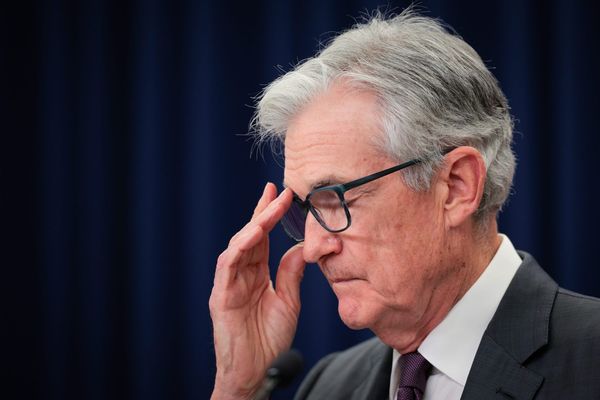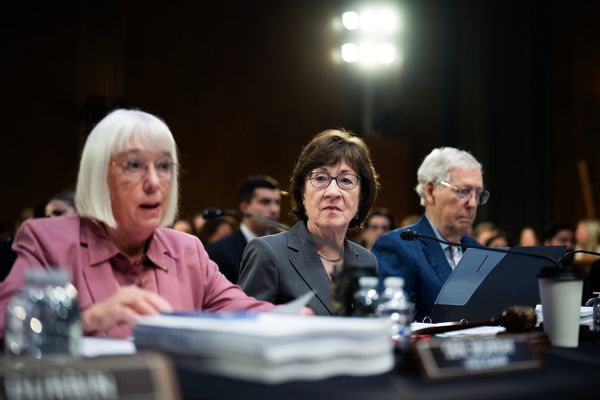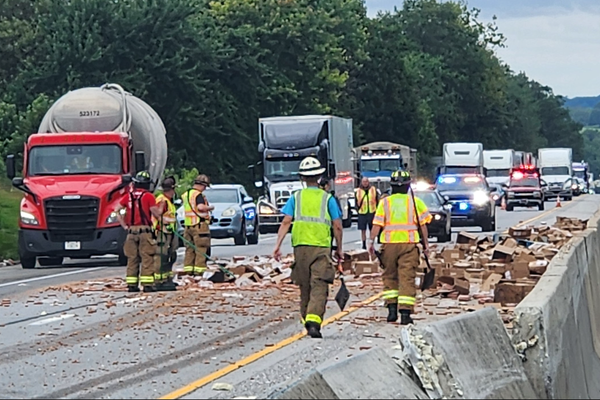
Scrap Aukus. Recognise Palestine. Save public housing. Overhaul childcare. On paper, the urgency resolutions up for debate at Victorian Labor’s state conference this weekend lay out a roadmap for progressive, nation-shaping reform.
But how much sway do grassroots members and unions really have on the increasingly cautious federal and state Labor governments?
The premier, Jacinta Allan, on Wednesday, said the conference provides the “policies and programs that shape the Labor agenda of the future”.
But then, when some of the proposed policies became public a day later, she was quick to distance her government. “It’s government that sets policy,” she said on Thursday.
Rank-and-file party members spend months of their own time drafting the urgency resolutions, or motions, lobbying for votes and hoping that – while non-binding – their proposals influence the party’s direction.
But many say that since state conference returned in 2023 – after a four-year gap marked by lockdowns and a federal intervention in the branch – it’s started to feel a bit like political theatre.
Sign up: AU Breaking News email
“It’s all a big, stage-managed performance really,” one Labor member says, claiming most controversial motions are vetted in advance by the premier, prime minister or relevant ministers’ office, with their wording softened and criticisms blunted.
Another member says there’s a “strange paradigm” at play, where ministerial staff “sometimes dismiss the backbone of the movement” while at the same time “put so much effort into making sure conference is clean”. (That is, no public bust-ups or headlines that might cause trouble for the government).
Some Labor MPs who have been around for decades insist it’s just the way it has always been.
“It’s just that we’ve come off a federal election win and everyone is ambitious to set the agenda,” one state MP said.
Indeed, this weekend’s gathering at Moonee Valley racecourse marks the first major meeting of Labor party members since the federal election. The prime minister, Anthony Albanese, won’t be in attendance, leaving Allan to rally the room of 600 delegates, split evenly between party members and affiliated unions.
The delegate mix will lean more progressive this year, partly due to the Health Workers Union sitting it out and the CFMEU being unable to participate, making it easier for some motions to get across the line. (Though one state Labor MP quipped that the party was “always more progressive than the government, just as the Liberal party conference is more conservative”).
On the draft agenda, there are two motions calling for a review of the Aukus submarine deal, including one from Labor Against War, which urges a withdrawal from the partnership, citing the US president, Donald Trump, as a “clear and present danger to peace and security”.
“We shouldn’t rely on the unstable Trump administration for our defence … Victoria must ensure we are protected from Trump’s chaos and division,” it reads. The group is optimistic it will pass.
Two motions deal with the childcare crisis, sparked by allegations of child sexual abuse against a Victorian worker, with one calling for stricter staffing ratios, tighter regulation and funding reform to “restrict and eliminate profiteering”. The other proposes a centralised Working With Children Check database, real-time alerts, psychometric testing for workers and the creation of a childcare worker integrity unit.
There’s a motion rejecting the Allan government’s proposed protest laws, arguing they “would serve only to stifle freedom of expression” and are “anti-democratic and regressive”.
Labor for Housing is also pushing the state government to commit to keep all 44 public housing tower sites slated for redevelopment publicly owned.
“If this resolution is endorsed by conference it is a clear and unambiguous statement that the Labor government does not have the support of its movement to sell the land,” Julijana Todorovic, the Labor for Housing co-convener and co-founder says.
“We have an opportunity to tell a good story about Labor’s value for public assets and ensuring wealth is shared by all Victorians.”
Todorovic said while the motion isn’t binding “it would be extraordinary for a government to act contrary to the will of those it will rely on to get re-elected next year”. A pointed warning.
The sentiment is shared by the unions, which provide much of the party’s volunteer base. The Australian Manufacturing Workers’ Union and the Health and Community Services Union are calling on the state government to follow through on past commitments – including a $12m 2022 election pledge to deliver a worker-led drug, alcohol and gambling service that, three years on, “remains unopened, with no confirmed land, construction or seed funding”.
Tony Piccolo from the AMWU said unions “work very hard with their members to generate very good ideas to bring to conference” only for some to “sit on a shelf” for years.
“You would think with the state debt level so high that unions offering to fund a health initiative would be embraced as it helps budgetary pressures.”
Most anticipated though are motions put forward by Labor Friends of Palestine demanding the federal government “immediately” recognise a Palestinian state and impose sanctions on Israel – their strongest push to date on the issue.
The issue flared up at last year’s conference, with protesters attempting to storm the building. Security has been ramped up this year as a result, with another protest planned for Saturday.
This year’s conference is also firmly focused on policy, with committees submitting final reports that will help shape Victorian Labor’s 2026 election platform.
Proposals include replacing stamp duty with an annual land tax, introducing a new tax on land sale super-profits, establishing a state-owned and regulated cannabis industry, mandating 12 days of reproductive health leave per year and creating a political disinformation register.
But the reports show few, if any, ministers, parliamentary secretaries or caucus representatives actually showed up at committee meetings, raising questions about how seriously they’re treated within government ranks.
If the mood on the ground is anything to go by, the base is no longer willing to be sidelined.
Benita Kolovos is Guardian Australia’s Victoria correspondent







